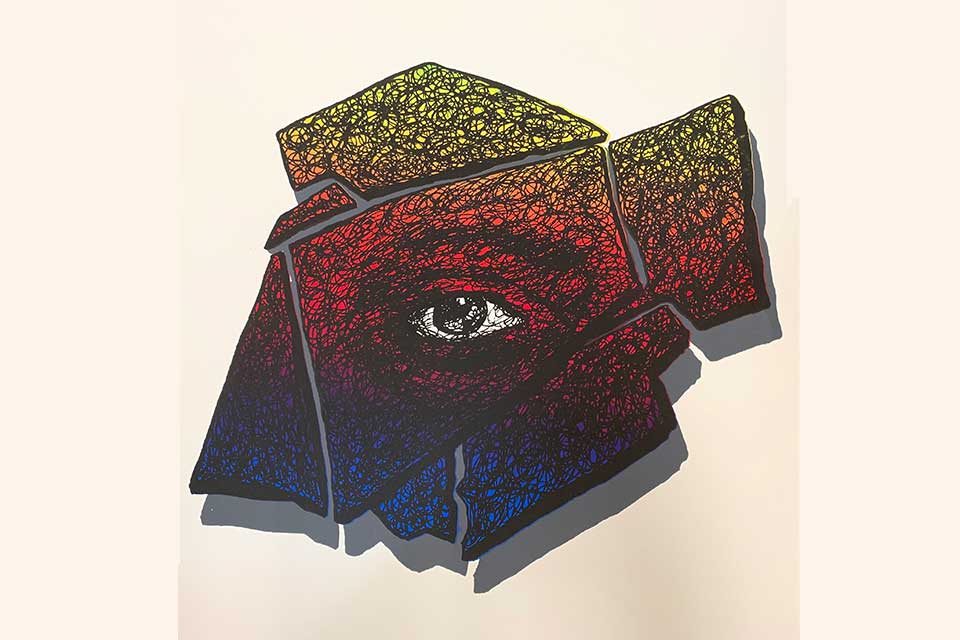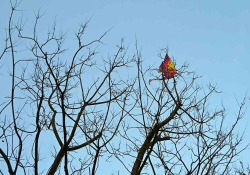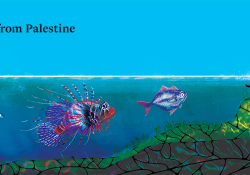Two Poems from Latvia

Conversation with a Postman
I get used to loneliness, she says.
Autumn is utterly close; politics distant. The cat’s
a refined soul, but pisses all over the flowers.
The green,
such a bright green September rain in the windows.
God, she says,
dear God, tonight I won’t ask for a thing, just give
my regards
to mama and papa.
And from an evening and a morning a new day
takes shape.
The postman, sunk in cares,
walks past
the gate.
“Dimensions are scarce . . .”
Dimensions are scarce, time is on our trail
soon enough, in early mornings, it will be fall
o Lord, I want to break out toward You
but that’s only in dreams, says Mr. Jung
between us stands the metaphysical glass—
a mirror that lets no light past
at night, man of God, with whom do you speak
with yourself, at least? that mirror is pristine
2006, Istanbul
Translator’s Note
by Kevin M. F. Platt
Uldis Bērziņš’s library, which took up an entire city apartment of multiple rooms, was stocked with books in many languages. So was his mind. Both seemed as though they had emerged from the imagination of Jorge Luis Borges or Umberto Eco. My first exercise in translating Bērziņš’s poetry took place in that library, in the company of the author himself and another poet, Alexander Zapol. We spoke in our three common languages—English, Latvian, Russian. It often seemed as though Uldis spoke all three better than anyone else in the room. With different interlocutors, he could have spoken in Turkish, Arabic, Spanish, Polish, or Swedish.
Uldis Bērziņš’ (1944–2021) was undoubtedly one of Latvia’s most important translators and poets of the late twentieth and twenty-first centuries. An astounding polyglot, he was trained originally in Turkic and Persian philology, avidly collected modern languages, and eventually undertook additional formal study of ancient Hebrew. His translations into Latvian include El Cantar de mio Cid, the Icelandic Edda, Saadi’s The Rose Garden, the Qur’an, several books of the Hebrew Bible; modern authors including Wisława Szymborska, Velemir Khlebnikov, W. H. Auden, and Borges; and much else.
As a poet, he flew largely under the radar until the end of the Soviet era—his writing was, if not outright rebellious, utterly irreverent toward Soviet political proprieties, and far beyond the usual acceptable event horizon of intellectual complexity and literary allusion. This is a poetry of conceptual subtlety, metaphysical speculation, punning wordplay and internal rhyme, and, above all, literary allusion that reaches across the many languages and epochs of human literary creation he studied and rendered into his native language. For all that, Bērziņš’s poems often offer intimate portraits of emotional experience. This combination of speculative complexity and human emotion, with a touch of reference to the early writings of Osip Mandelstam, are in evidence in the two poems presented here.
Very little of Bērziņš’s work has appeared in English translation. This might make us think of the Barber Paradox: to wit, the one who shaves all those who do not shave themselves. Bērziņš’ translated all, but who is to translate him? The question is as much one of diverse languages of different scales as it is one of translators. His life work was to translate the classics of world literature into a small language and to incorporate them into its literary tradition via the digestive tract of poetry. It is quite another task—a different kind of service—to translate the work of an outstanding representative of a small literature into a large one. This is the work we undertake with these translations.











